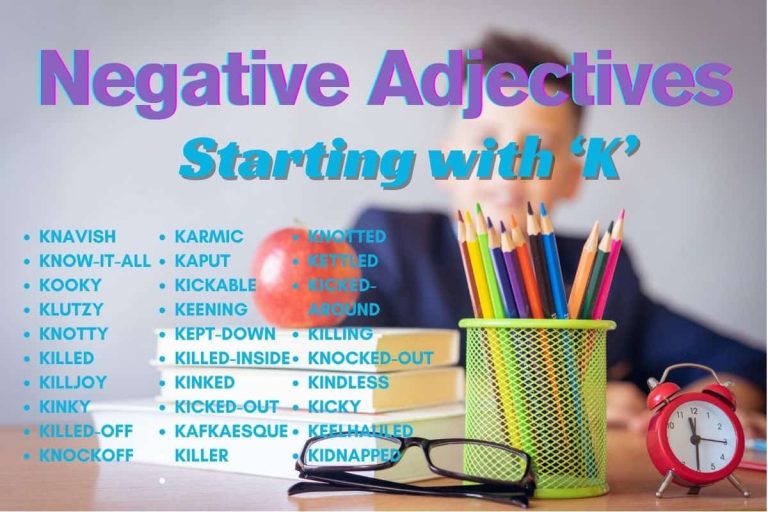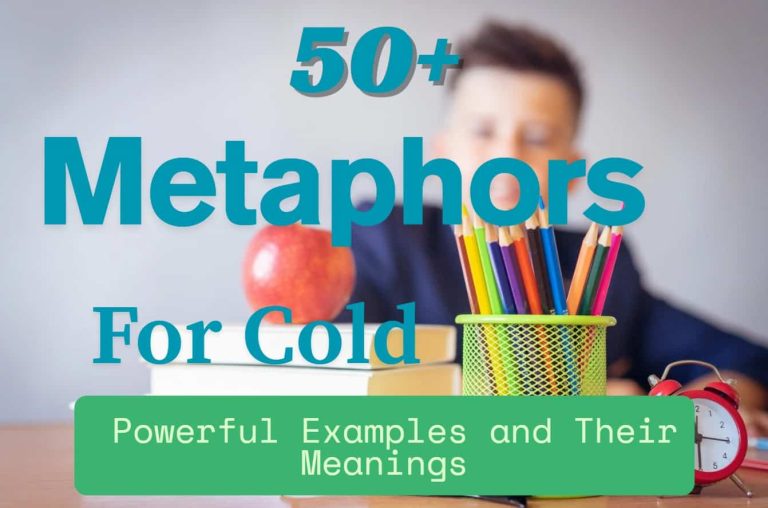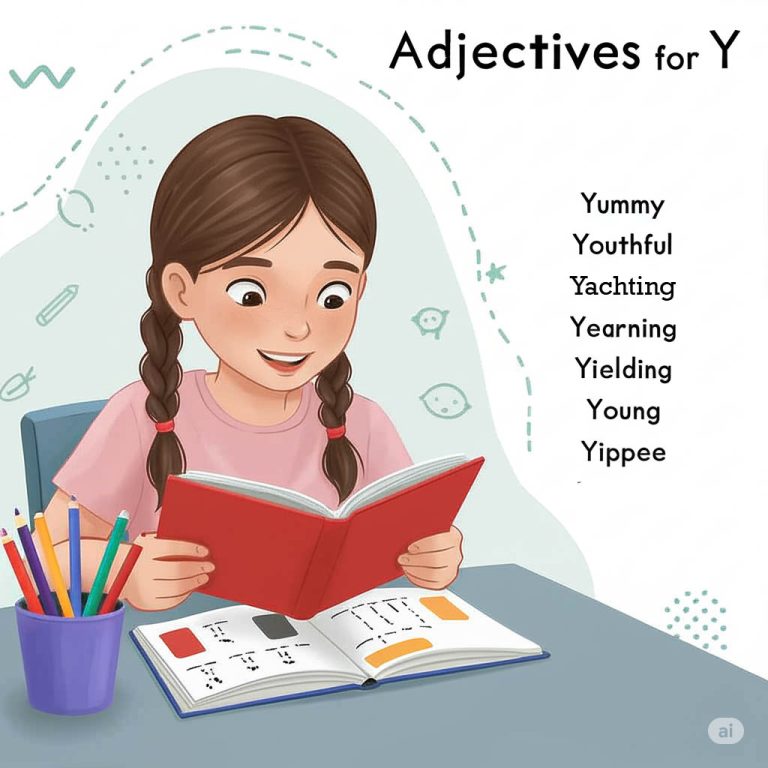Adjectives Starting with ‘O’ (With Definitions & Examples)
The letter “O” might not be the first that comes to mind when you think of powerful adjectives, but it’s full of surprisingly expressive and impactful words. From describing someone as optimistic or outgoing to calling a moment overwhelming or a response offensive, adjectives that start with “O” help you communicate emotion, attitude, and detail with precision.
These words cover a wide range of tones — from positive and uplifting to critical and dramatic — making them perfect for writers, students, or anyone looking to elevate their vocabulary. Whether you’re describing people, places, experiences, or feelings, “O” adjectives offer just the right flavor to sharpen your expression.
This detailed exploration will benefit students preparing for exams, writers aiming for greater precision, and anyone looking to enhance their understanding and use of the English language. We will cover various types of adjectives, provide numerous examples, and offer practice exercises to solidify your knowledge.
By the end of this article, you’ll be well-equipped to confidently incorporate ‘O’ adjectives into your everyday communication.
Types of Adjectives Starting with ‘O’ and Examples
Descriptive Adjectives
Descriptive adjectives are the most common type, providing details about the qualities or characteristics of a noun. They can describe appearance, color, size, shape, or any other attribute that helps to paint a more vivid picture. Examples include old, orange, open, odd, and ornate. These adjectives add richness and detail to our descriptions, making them more engaging and informative.
For example, instead of simply saying “a car,” we can say “an old car” or “an orange car,” providing more specific information. Descriptive adjectives are essential for creating vivid imagery and conveying precise meaning.
Quantitative Adjectives
Quantitative adjectives indicate the quantity or amount of a noun. While fewer adjectives starting with ‘O’ directly express quantity, “one” functions as a quantitative adjective when modifying a noun.
It specifies a single unit or instance of the noun. Other related terms like “only” can also function adjectivally in certain contexts.
For example, “one apple” indicates a single apple, distinguishing it from multiple apples. Quantitative adjectives are crucial for specifying amounts and providing precise numerical information.
Demonstrative Adjectives
Demonstrative adjectives point out specific nouns. While there are no direct demonstrative adjectives starting with “O,” understanding the broader category helps contextualize how adjectives function to specify nouns.
This category includes words like “this,” “that,” “these,” and “those.”
Demonstrative adjectives clarify which noun is being referred to, distinguishing it from others. Although ‘O’ adjectives don’t fall into this category, the concept is important for a complete understanding of adjective types.
Table 1 focuses on adjectives related to appearance and condition.
| Adjective | Example Sentence |
|---|---|
| Obese | The doctor advised the obese patient to adopt a healthier lifestyle. |
| Oblong | The table was an oblong shape, perfect for fitting in the narrow dining room. |
| Obscure | The obscure village was hidden deep within the mountains. |
| Observant | The observant detective noticed a small detail that everyone else had missed. |
| Obsolete | The technology became obsolete within a few years of its release. |
| Obtainable | With hard work and dedication, the goal is obtainable. |
| Occasional | We experience occasional showers during the summer months. |
| Occupied | All the seats on the bus were occupied during the morning commute. |
| Odd | He was wearing an odd combination of clothes. |
| Odorous | The odorous chemicals were stored in a separate room. |
| Official | This is the official statement from the company. |
| Offensive | His comments were considered offensive by many. |
| Oiled | The oiled machine ran smoothly. |
| Old | She lived in an old house. |
| Olive | She has olive skin. |
| Ominous | The dark clouds created an ominous atmosphere. |
| Ongoing | The investigation is still ongoing. |
| Online | He is taking an online course. |
| Only | He was the only person who knew the answer. |
| Open | The store is open until 9 PM. |
| Operative | The new system is now operative. |
| Opportunistic | The opportunistic salesman tried to take advantage of the situation. |
| Optimal | This is the optimal solution for the problem. |
| Optional | Attendance at the meeting is optional. |
| Orange | She wore an orange dress. |
| Orbital | The satellite is in an orbital path around the Earth. |
| Orderly | The classroom was very orderly. |
| Ordinary | It was just an ordinary day. |
| Organic | She buys organic vegetables. |
| Ornate | The building was ornate. |
Table 2 presents adjectives that describe qualities, behaviors, or characteristics. These adjectives often relate to personality, ethics, or general attributes.
| Adjective | Example Sentence |
|---|---|
| Objective | The journalist tried to remain objective in his reporting. |
| Obedient | The obedient dog followed all of his owner’s commands. |
| Obliging | He was always obliging and willing to help others. |
| Optimistic | Despite the challenges, she remained optimistic about the future. |
| Outgoing | She has an outgoing personality. |
| Outlandish | He wore an outlandish outfit to the party. |
| Outstanding | She received an award for her outstanding contributions. |
| Outspoken | He is an outspoken advocate for human rights. |
| Overcast | The sky was overcast with heavy clouds. |
| Overjoyed | She was overjoyed when she heard the good news. |
| Overlapping | The overlapping responsibilities caused some confusion. |
| Overlooked | The overlooked detail was crucial to solving the mystery. |
| Overnight | The company experienced overnight success. |
| Overpowering | The scent of the flowers was overpowering. |
| Overriding | Safety is the overriding concern in this project. |
| Overripe | The fruit was overripe and starting to spoil. |
| Overseas | He took an overseas trip for his vacation. |
| Overt | The threat was overt and impossible to ignore. |
| Own | This is my own car. |
Table 3 focuses on adjectives that relate to quantity, position, or temporal aspects.
| Adjective | Example Sentence |
|---|---|
| One | I have one brother. |
| Onward | The journey continued in an onward direction. |
Usage Rules for Adjectives Starting with ‘O’
Adjectives starting with ‘O’ generally follow the standard rules of adjective usage in English. They are typically placed before the noun they modify (attributive position) or after a linking verb (predicative position).
For example:
- Attributive: The orange car sped down the street.
- Predicative: The car is orange.
Some adjectives, particularly those ending in ‘-able’ or ‘-ible,’ can also be used in postpositive position, especially in formal writing or when modifying indefinite pronouns:
- Any solution obtainable is worth considering.
When using multiple adjectives to describe a noun, they generally follow a specific order: opinion, size, age, shape, color, origin, material, and purpose. However, this order is not always strictly followed, and the most important adjectives are often placed closest to the noun.
Coordinate adjectives, which independently modify the noun, are separated by commas:
- The old, ornate building stood on the corner.
However, if the adjectives are not coordinate (i.e., one adjective modifies the combination of the other adjective and the noun), they are not separated by commas:
- The dark orange sky signaled the approaching storm.
Common Mistakes When Using Adjectives Starting with ‘O’
One common mistake is misusing adjectives that sound similar but have different meanings. For example, “objective” (impartial) and “obliging” (willing to help) are often confused.
To avoid this, it’s essential to understand the specific meaning of each adjective and use it in the appropriate context.
Another common mistake is incorrect placement of adjectives in a sentence. Remember that adjectives usually come before the noun they modify.
While there are exceptions, such as with linking verbs, adhering to this rule will prevent confusion.
Here are some examples of common mistakes and their corrections:
| Incorrect | Correct | Explanation |
|---|---|---|
| He was very objective, always helping others. | He was very obliging, always helping others. | “Objective” means impartial, while “obliging” means willing to help. |
| The house old was beautiful. | The old house was beautiful. | Adjectives typically precede the noun they modify. |
Practice Exercises
Test your understanding of adjectives starting with ‘O’ with these practice exercises. Fill in the blanks with the appropriate adjective from the provided list.
Adjective List: obsolete, obvious, odd, open, orange, optimistic, outstanding
- The answer to the question was quite __________.
- She wore an __________ dress to the party.
- The technology became __________ after a few years.
- He has an __________ personality and always looks on the bright side.
- The store is __________ until 10 PM.
- He received an award for his __________ contributions to the company.
- It’s __________ that he would choose such an unusual tie.
Answer Key:
- obvious
- orange
- obsolete
- optimistic
- open
- outstanding
- odd
Exercise 2: Rewrite the following sentences using adjectives starting with ‘O’ to make them more descriptive.
- The car was a bright color.
- The building was very decorated.
- He is a person who always sees the good in things.
- The technology is no longer in use.
- The solution was easy to see.
- The performance was excellent.
- It was a strange occurrence.
- The seats were all taken.
- The fruit was past its prime.
- She has skin with a warm undertone.
Answer Key: (Possible answers, variations may exist)
- The car was orange.
- The building was ornate.
- He is an optimistic person.
- The technology is obsolete.
- The solution was obvious.
- The performance was outstanding.
- It was an odd occurrence.
- The seats were all occupied.
- The fruit was overripe.
- She has olive skin.
Exercise 3: Identify the adjectives starting with ‘O’ in the following sentences and explain their function.
- The old house stood on a hill overlooking the town.
- The orange juice was freshly squeezed.
- He is an optimistic person who always sees the best in others.
- The obsolete technology was replaced with a newer model.
- The only solution was to start over.
- The store is open until late.
- She received an award for outstanding service.
- The odd behavior made everyone suspicious.
- His objective was to finish the project on time.
- The overseas trip was a great experience.
Answer Key:
- old: describes the house
- orange: describes the juice
- optimistic: describes the person
- obsolete: describes the technology
- only: describes the solution
- open: describes the store’s status
- outstanding: describes the service
- odd: describes the behavior
- objective: describes his goal
- overseas: describes the trip
Advanced Topics
For advanced learners, exploring the etymology of adjectives starting with ‘O’ can provide deeper insights into their meanings and usage. Many of these adjectives have Latin or Greek roots, which can help in understanding their nuances.
For example, “objective” comes from the Latin word “objectivus,” meaning pertaining to an object.
Another advanced topic is the use of adjectives starting with ‘O’ in figurative language. These adjectives can be used in metaphors, similes, and other literary devices to create vivid imagery and convey complex ideas.
For example, “He was an open book” uses the adjective “open” metaphorically to describe someone who is transparent and easy to understand.
Understanding the subtle differences between synonyms is also crucial for advanced learners. For example, “odd” and “strange” are often used interchangeably, but “odd” can imply something slightly amusing or quirky, while “strange” can suggest something more unsettling or unfamiliar.
Frequently Asked Questions (FAQ)
- What is the function of an adjective?An adjective modifies a noun or pronoun, providing more information about its qualities, characteristics, or attributes. It adds detail and precision to our descriptions.
- Where are adjectives typically placed in a sentence?Adjectives are usually placed before the noun they modify (attributive position) or after a linking verb (predicative position). However, there are exceptions, such as with postpositive adjectives.
- Can multiple adjectives be used to describe a single noun?Yes, multiple adjectives can be used to describe a noun. However, they should be placed in a logical order, typically following the sequence: opinion, size, age, shape, color, origin, material, and purpose. Coordinate adjectives should be separated by commas.
- What is the difference between “objective” and “obliging”?“Objective” means impartial or unbiased, while “obliging” means willing to help or do favors. They are often confused because they sound similar but have different meanings.
- How can I expand my vocabulary of adjectives starting with ‘O’?Read widely, pay attention to the adjectives used in different contexts, and use a dictionary or thesaurus to look up unfamiliar words. Practice using new adjectives in your own writing and speech.
- Are there any adjectives that can only be used in a predicative position?Yes, some adjectives are primarily used in a predicative position (after a linking verb). However, there are fewer examples of this starting with “O” compared to other letters.
- What are some common suffixes used to form adjectives?Common suffixes used to form adjectives include ‘-ous,’ ‘-al,’ ‘-ic,’ ‘-able,’ and ‘-ible.’ These suffixes can be added to nouns or verbs to create adjectives with related meanings.
- How do I choose the best adjective to use in a sentence?Consider the specific meaning you want to convey and choose an adjective that accurately reflects the qualities or characteristics of the noun you are describing. Pay attention to the context and the connotations of different adjectives.
Conclusion
Mastering adjectives starting with ‘O’ is a valuable step in expanding your English vocabulary and improving your communication skills. By understanding their definitions, usage rules, and common mistakes, you can confidently incorporate these adjectives into your writing and speech, adding detail, precision, and color to your language.
Remember to practice regularly and pay attention to how these adjectives are used in different contexts. Keep practicing, keep exploring, and keep learning!




